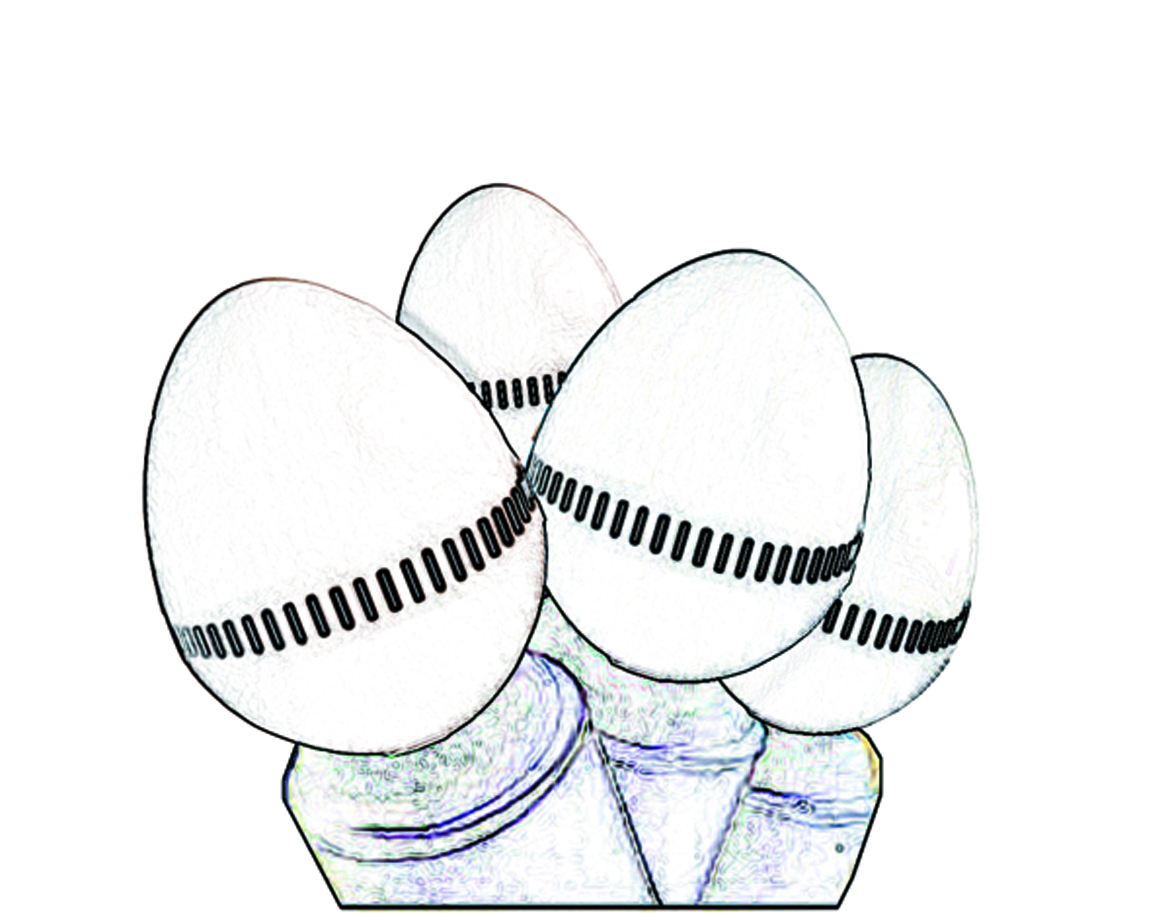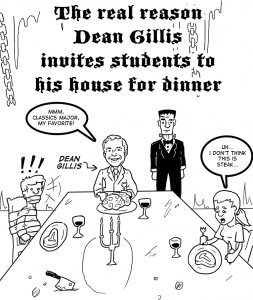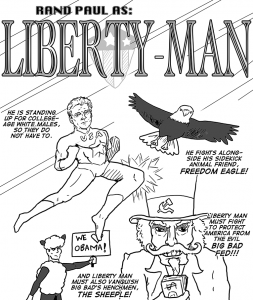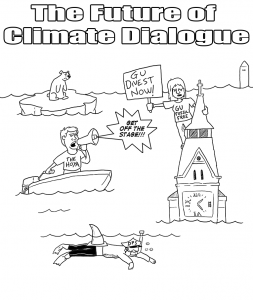Turn your eyes away from the swooning, feral brushstrokes of a horizon daubed like a mimesis on canvas resembling a painted desert slipping into sundown just beyond the balustrade, where you prop your body with a slightly forward lean, and turn your head to face the opposite direction toward a white demi-sun hovering over the sidewalk of the plaza that is every streetlamp’s shine formed into a single massive, almost solid-looking sphere of light like the thorax of a firefly, fairylike, with rays like stringent vines; fingers of brightness that reach their shinings across the four-story balcony and straight through the cornea in a bedazzling explosion of brilliance and refulgent paroxysms of wattages.
The streetlamps flicker on cue like egg timers on Christmas lights, as they are programmed to self-activate according to how soon it gets dark late in the day, and like surveyors of the seasons, they draw the demarcations between afternoon and evening. In early autumn, they suddenly and unexpectedly flare to life at around 8:30, sending a jolt of obligations and daily responsibilities like an electrical shock through your body (oh no, I have to head home to complete important tasks A, B, and C, all of which must be done immediately), but after daylight savings time, they set the premature beginning of night at a little after five, and lateness itself arrives early by virtue of lost daylight, as if by arm of god itself the hands of mankind’s teleology were wound three hours counterclockwise.
Death is winter, when night falls far too early, when hours are saved by pretending they have somehow moved backward in time, though warmth of sunlight is lost forever and far too soon. Life is summer, when the beauty of the sunset over twilit land seems so far away, and we pretend we are ahead of time to make the hours fewer as the sun lingers long into late evening, even when we know the day had already exhausted itself long before and by now it doesn’t even care enough to wait. And so it is time, in this way, god giveth, and it is time, in this way, god taketh away.
You ask a friend what time his watch says, and he tells you, “Ten to,” and you say, “What,” finishing his non-sentence for him as another question, and he tells you, “Ten to an even number, too,” and before he hands you another clue, this conversation already has you doubting the timeliness and punctuality of “god,” so hollow as a word at its most central point in itself. An “It” that cannot be experienced under the cascading sands of a leaking hourglass, its middle “o” the circumference rimming a well filled completely in with the blackness of all the lost minutes and wasted seconds waiting for a lateness perennially postponed and eternally delayed, where a god so much like love happens way too late, and the watch on your wrist is the ambassador of the devilry of time, and the steady march of its clockwork numbing the steady cadence of machinated lies.
You would be god if you could climb to the topmost point of that Viacom skyscraper poking out of the skyline, up to the brow of a corporate Babel, where you would arrive slightly later and looking slightly smarter in a new suit bought exclusive to your rendezvous, only to arrive to find that Baal is at the base of the tower, his army of minion demigods with a wall of torches suspended in the air by the tight grips of their hundreds of upraised hands and the unfamiliar tongues of alien gods lashed and licked by the flames of the burnings of their alters by the prideful malice of Israel, and as you close the book and let the new wrinkles your reading sewed into its spine solidify like wounds in skin that graduate to scars, a quote from it stabs you in Legion, “for we are many,” and your stream-of-consciousness responds like voices echoed off asylum walls.
Its o is hollow like a well Its o is hollow like a well Its o is hollow so hollow.
I of the Author
Wendy Moira Angela Darling. That was her name, and that was the beginning of fairies. It started in a fictional wintry London, with an alcoholic Robin Williams starring as a Peter Pan allegory in a Chris Columbus-directed film. 1992. For the year of all young children who hadn’t read the books in our post-postmodern after-‘80s, that was the beginning of fairies. And for all of you—all of you who form a collective protagonist in this story—you never wanted to ever see the original animated Disney videos that predated this space of time; you cared nothing about the countercultures preceding your birth, and there was something, you then came to know, about generations—that the generation in which you mature, learn, and grow up is the duration of earthly time in which you not only grow, but grow to love. It is the space you remember well, but the love of it you can only find after the fact. When a time is in motion, and you are in its moment, you never know how to love it then, and you can only love it after. Everything that predates a ‘90s blockbuster by a series of many years and by writings far even before that, the makings which comprised the very literary history that was responsible for the synthesis of the story of Peter Pan in the first place—does not matter to you even the slightest because it cannot reach the heart.
When you attached yourself to such films and happy thoughts at an early age—at that point, you began to conceive of your life actuality as an allegory of such works of art. Wendy was the loving allegory of a dear grandmother; Peter was the young you who you hoped to be later; the old, corrupted, loveless attorney Peter is you of the present day, the one that mothers run away from, and you will see why you shiver in the dreams in which you’re placed when you hear the indignant incredulity in Wendy’s voice when she dolefully observes, “Peter, you have become a pirate” as you feel the involuntary automatism of your own hand by instinct of fear and relentless regret of self pull the covers up over your head and let the tears waterfall from your eyes. You have failed your life. You have failed your mother. Think your happy thought, Peter. Remember what you loved, and just remember that with all the love in your heart and all of the people around you whom do, you neither will nor can ever know how it really feels to be unloved.
Opened is a well of allegories as it snaps the tarp draped over its gaping mouth into halves like dicers’ oaths found out and turned over like a cheater’s hand of cards, the truth about you rushes in your face in a geyseric, upward surging rush of names, and these voices from the ’90s come and lift you up out of your inhumation in a hell of doubt: Mrs. Doubtfire: “If you only remember that all mommies and daddies love their children, you will have a family in your heart. Wherever you go.” Tinkerbell: Your happy thought, Peter. Think your happy thought, and you will fly.
Your comfort mantras are rudely intercepted by the worst nightmare you will ever have, one that visits in recurring haunts of sleep like horsemounted deathrides through dreams. In this nightmare, the perspective on the image of yourself—or the character that is supposed to represent you in the dream—is seen from the ceiling above in the dreamspace, as if your point of view or lens of the dream events is from that of a light fixture or a fly perched on a rafter. “Tien semblable, tien frere” is in a hurry of pursuit through some store. You don’t know what is bought or sold, if it is day or night or why you are there. But you are looking for your mother in the store and see her several times as she is walking quickly through the aisles as you pursue her, but you never see her face. You finally see her, recognizing her figure—without the faintest silhouette of doubts it is her—but she ignores you. She walks very rapidly away from you. She doesn’t want you to follow her. She is trying to get away from you, and you are crying and calling her name, stepping on each of the fading footfalls she trails behind, the frantic sprint of your feet standing for a nanosecond each in what may be the last sound you hear of her.
When the nightmare comes, you are waiting for her to turn around and face you. And when she finally does, the place where her face should be is covered by the reflection of your own in an oval mirror.
The moment we learn to love always happens way too late, and death is always on time or early.
When life takes you far away from home, your yearnings return there in telepathic tears interrupted by cheekbones, jawbones, collars, breastpockets of shirts and dorm room floors. It was when you left home for good that you saw how lucky you were to have the family you do, and it was when you were already gone that you saw all the love that was there that you had already missed. But a family is like a well of creation energy so much fuller than the hollowness of the “o” in “god” that when voiced aloud sounds like a bottom fallen out under firmly planted feet on once stable ground. It never leaks, but pours out. It is a fountain of foundation full of youth thought to be lost that will surprise you when found. And those around you, who see you looking in the reflecting pool of the well, seeing your face in the light of youth and the glimmer of adventure, will be as your mother when she smiled at you when you first toddled up to your own reflection in the mirror, and the love for you in children’s voices will say in revelation, yet certainty, You are the Pan. I believe in you, Peter. I believe in you. I believe in you. I believe in you. I believe in you. When a gulp or a swill from the source seems so far away and it appears even more hopeless to reach the helpless desperation of a ladling palm toward the desiccated dregs of the bucket suspended by the irritated creaks of a pulley that makes the cup of life lurch up a perfect circle of darkness pockmarked with droughts barely avoided by patches of loitering drops, just know the leaving of this behind must relearn love and learn to relove within armslength and in embrace of self—the sanctum where voices of your true believers resound in a choir of timeless refrain and celebrate your heart with boundless echo.
On your way home to see your mother, the voices are back, and they’re evil this time. In blasphemous timbres, they form a cacophony in the maison of mimesis, the house of mirrors that is your mind, that fills it with disgusting images of you at your worst of waking moments. All the times that you did things you never would have, had your mother been viewing your reflection from behind you in the mirror. Why? Because she wouldn’t smile at you. And upon seeing all the leering pantomimes, like one thousand television screens stacked atop each other showing only visions of you committing tiny tragedies throughout your life, you swallow a gulp of self-disgust that tastes of the nauseating filth flavoring Pound’s “yet this is you”. The mirrors don’t tell lies. The mirrors are tellers of time, and the acoustics of your mind form their voices into an orison containing one word; a liturgy comprised of only pronoun “I”. God is mother, where there is unconditional love, but would she love you if she knew of all the blood you drew? You stoop down to your knees, and in an instant, in more telepathy than prayer, you whisper to unlistening air,
In the endless, godless kingdom of my heart, you will always be the woman who lived in me the love that never leaves, even in the so many times I risked with such regret. As I think of you, I look once more around this mansion of voices that was once my mind, expecting a return from some devil inside—but no voice answers mine. I is nothing more than the love in your eye, the family you have placed in my soul and the mirror I look into every time I see my own in the cast of its light. In the godless kingdom of my heart, my mother, my love—you will always be the woman who saves me from I.

To Believe in Fairies
January 15, 2009

Read More
Subscribe
Login
0 Comments
Oldest




